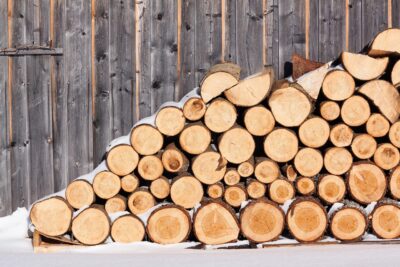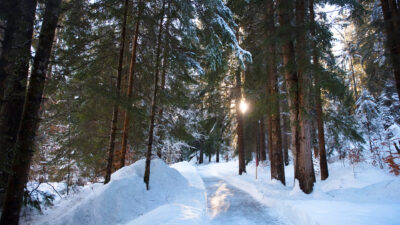Poplar Places First In The Southeast
Southeastern hardwood representatives have expressed some hope in light of a pause on tariffs and the potential for a deal between the U.S. and China.
A lumber source from Tennessee reported that the market in his area is “decent but it is pretty much on edge” because the “order file is getting thinner. The tariffs have been impacting the market. People are afraid of placing orders and having them getting stuck.”
It is not as “fluid” as it was six months ago and he added that not only Asian markets, but some European markets are struggling as well. According to him, customers are wondering, “What’s it really going to cost me?” He believes that orders for furniture in the U.S. aren’t being placed and as a result, “manufacturing companies don’t buy as much wood if they can’t be sure they’re going to sell their finished products.”
They offer “most of the domestic species in the region. Primarily, we sell Ash, Poplar and Walnut. We do 4/4 through 8/4 in most items. They are all erratic, but I would say that from a domestic standpoint, Poplar is probably leading the way. We do 10/4 in Poplar but it just kind of depends upon the regions and what they normally consume.
Then it becomes regional —whether it is FAS products that are going to specialty regions, or if it is No. 1 and No. 2 Common that are going to the Asian markets. The Middle East is primarily a thick stock market for us.”
His customers consist of manufacturers and distributors. “We do a lot of business with distribution yards globally. We sell two or three containers, and they sell two or three bundles of this kind.” He stated that the biggest fear of the export market is the tariffs, which are “creating more of an uncertainty than what interest rates may be. On the domestic side, U-Haul sales and interest rates and all these things are playing into effect, and customers are withholding buying.” Another fear he listed is the difficulty some people are experiencing getting insurance, which is “quelling a lot of people’s appetite.”
One representative in North Carolina expressed his dissatisfaction with the stress caused by the tariffs and that the nation needs a deal.
While their transportation is fine, they are “struggling to find skilled people to hire.”
In Alabama, a lumber representative said his market is at a “standstill” but rumors at the time of this writing of a deal between China and the U.S. have caused his business to “pick up a little bit.”
It is better than six months ago even though Poplar is “kind of at a standstill.” In addition to Poplar, they offer Red and White Oak and Ash in 4/4 and a little 5/4. “My best seller is Poplar FAS and Red Oak FAS,” he said. “White Oak is coming down but I’m still able to move it. The only thing that’s not moving for us is the Poplar No. 1 Common and No. 2 Common.”
They sell to end users and wholesalers. They also export. “My customers are a little bit more optimistic right now because of the deal but we’ve just got to figure out the price,” he said.
Labor and transportation aren’t posing issues for him, but log supply is. “We’re out of logs,” he added.
In North Carolina, one hardwood representative explained that the market, at the time of this writing, is “performing a little better. I think the country needs a deal. I think it’ll have to reach a deal. I think this whole tariff situation was a waste of time and energy, and it didn’t accomplish anything.” The market is better than six months ago, as the tariffs have “eased up.”
“Our primary species are Poplar, and Red and White Oak. Poplar is the best seller,” he said. They also deal in some Hickory and Maple and sell those species in “all grades and thicknesses and 4/4 only in the Oaks. We’re working with FAS, No. 1 and No. 2 Common.”
Distributors, millworkers, “furniture folks” and exporters are their clientele. “The pause is helping everybody involved,” he noted.
“We’re always looking for talent, but we’re pretty much fully staffed,” he said when asked about his labor force.
“The logging force is just aging, so I think we’re going to be hit with a lack of loggers.”










